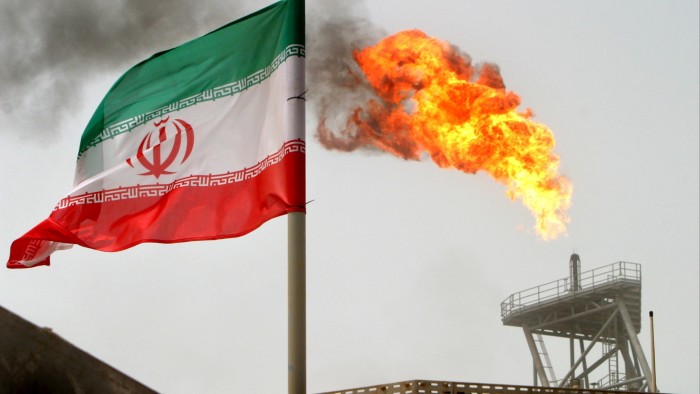Stay informed with free updates
Simply sign up to the Global Economy myFT Digest — delivered directly to your inbox.
The writer is author of ‘Blood and Treasure, the Economics of Conflict from the Vikings to Ukraine’
Worries over geopolitical risks have regularly featured towards the top of polls of investor concerns over the past year. In recent months, “geopolitical risk” has often been a polite euphemism for unpredictable American tariff policies, preferred by US institutions which do not want to annoy the White House too much. But now the geopolitical risk which is materialising, is a more traditional one, the threat of long-running conflict in the Middle East putting global oil supplies at risk.
Oil prices rose as much as 12 per cent in the immediate aftermath of Israel’s attacks on Iran’s nuclear facilities. Over the weekend, the conflict escalated further with Israel hitting, among other targets, a major oil terminal in Tehran. Iran produces around 3.3mn barrels per day of crude, of which 2mn are exported. Given global oil demand is estimated at 103.9m bpd by the International Energy Agency and that Saudi Arabia and the UAE are reported to be capable of raising production quickly by more than 3.5m bpd, even a severe disruption in Iranian production is likely manageable. The spike in the oil price following the first Israeli strikes reflected wider concerns that the conflict could spiral to a point where Tehran attempted to close the Straits of Hormuz to tankers or even attack the oil facilities of its neighbours.
The interplay of geopolitical uncertainty, oil prices, and macroeconomics is rarely straightforward, as some useful research from the European Central Bank published in 2023 indicates. It points out Brent crude prices leapt by 5 per cent in the immediate aftermath of 9/11 terrorist attacks in New York as investors priced in the chance of war in the Middle East disrupting supplies. But they were down by 25 per cent within 14 days as fears that a slowing global economy would weaken oil demand came to the fore. In the two weeks following Russia’s invasion of Ukraine in February 2022, Brent prices rose by 30 per cent. But they were back at their pre-invasion level eight weeks later.
The ECB research suggests geopolitical shocks impact the global economy through two channels. In the short term, the most important of these is usually the risk channel. As financial markets price in the chance of further disruptions to global oil supplies, it causes an increase in the cash value of holding oil contracts — known as the convenience yield — putting upward pressure on oil prices. But in the longer term, the economic activity channel comes into play. Higher geopolitical tensions tend to act as negative shock to global demand as increased uncertainty weighs on investment and consumption and potentially disrupts trade. This channel usually dampens global oil demand and prices. In other words, oil price pressures resulting from geopolitical shocks have tended to be short-lived.
This has not always been the case. The oil price shocks of 1973 and 1979 were both followed by US recessions and the potential for a geopolitically driven oil price spike to capsize the global economy still tends to concern both policymakers and investors. They can perhaps take some solace from research published earlier this year by the Federal Reserve Bank of Dallas. The authors of this study adopted a novel approach, attempting to separate out oil price uncertainty from wider macroeconomic uncertainties. They found that geopolitically driven oil price risks are unlikely to generate sizeable recessionary effects. Even a large increase in the risk of a production shortfall on the scale of 1973 or 1979 would only, according to the model, lower economic output by 0.12 per cent.
While high uncertainty about future oil supplies can raise crude prices in the short term, unless those risks materialise, the global macroeconomic fallout is likely to be limited. A similar impact is evident in asset prices more generally. According to the IMF’s most recent Global Financial Stability Report, geopolitical risk events since the second world war have usually been associated with a modest fall in equity prices in the short term but, in most cases, with no lasting impact. Global equity markets eventually shrugged off both Iraq’s invasion of Kuwait in 1990 and Russia’s of Ukraine in 2022. Again though 1973 stands out as an exception, with the oil embargo of that year leaving global equity markets sharply lower 12 months later.
Much will, of course, dependent on how long the Israel-Iran conflict lasts and how it escalates. It should be remembered that even during the “Tanker War” of the 1980s, in which during the Iran-Iraq more than 200 oil tankers passing through Hormuz were bombed, oil prices stabilised after an initial spike. The effects of anything short of a major disruption in Middle Eastern oil output are likely to be contained.
Read the full article here




